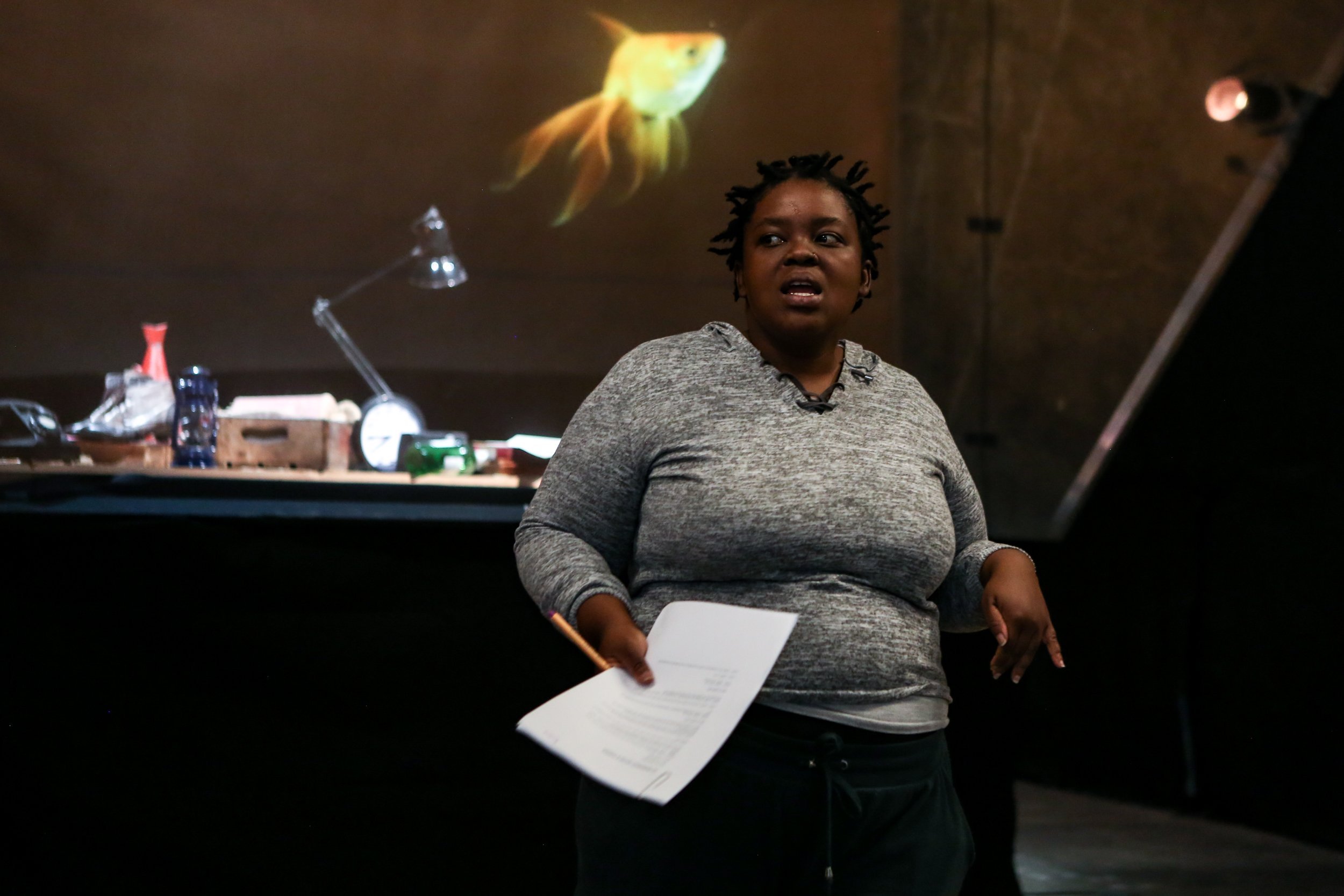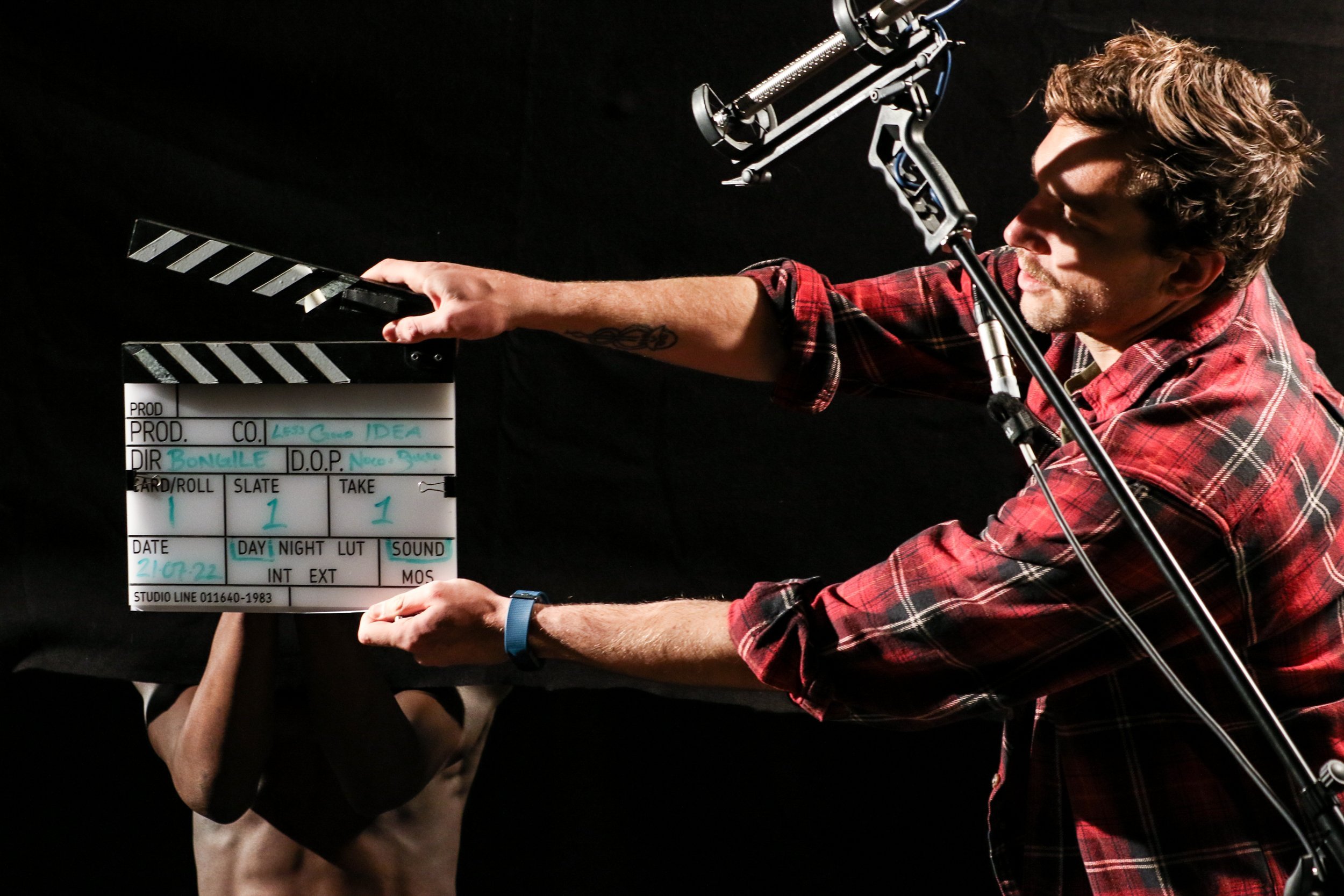THINKING IN PEPPER’S GHOST
Named after John Henry Pepper who popularised it in 1862, the Pepper’s Ghost is a 19th-century theatrical illusion technique that uses a half-silvered mirror. The technique allows things to be seen behind the mirror (if they are lit), and images in front of the mirror to be reflected (if they are lit). With the introduction of video compositing and live projection, new illusory performative and narrative techniques become possible.
In 2019 and early 2020, during the first round of ideation workshops for its 7th Season, The Centre set up a basic structure in the 2nd Space – a table, a mirror, a projector, lights – and invited the participants of Season 7 to explore what this simple technique offered. “It was a discovery for all of us, curators as well as actors, artists and directors. In the end, eight projects were made in our ghost box. But the discoveries and experimentation here are just the beginning,” said co-founder of The Centre and Season 7 co-curator, William Kentridge.
From 19 to 22 July 2022, SO | The Academy for the Less Good Idea continued its process of experimenting with the possibilities of the Pepper’s Ghost through a workshop with seven participants at The Centre for the Less Good Idea, held in the 2nd Space. Led by performer, musician, writer, educator and frequent collaborator of The Centre, Bongile Gorata Lecoge-Zulu, the workshop made use of the Pepper’s Ghost mechanism as a device for thinking through, among other things, performance, storytelling and physicality in the short-form.
WAYS OF THINKING
From 19 to 22 July, SO | The Academy for the Less Good Idea continued its process of experimenting with the possibilities of the Pepper’s Ghost through a workshop with seven participants at The Centre for the Less Good Idea, held in the 2nd Space. Led by performer, musician, writer, educator and frequent collaborator of The Centre, Bongile Gorata Lecoge-Zulu, the workshop made use of the Pepper’s Ghost mechanism as a device for thinking through, among other things, performance, storytelling and physicality in the short-form.
Over the course of the four-day workshop, Lecoge-Zulu led participants – some who had worked with the device before and others who hadn’t – through introductory and improvisatory exercises in order to gain a familiarity with the mechanism, learn the range of performative possibilities enabled by the device, and generate new ideas and material for performance inside the Pepper’s Ghost. Following this, certain elements or ideas were filmed for compositing and projection, allowing for further explorations of the hybrid live and digital possibilities of the mechanism.
Experiments with props, found footage, filmed elements, responsive sound, lighting, and live performance and projection allowed for a series of explorations that resulted in mime-work, tabletop theatre, dance films and epic allegory. Departing from The Centre’s traditional method of employing a central set of themes of provocations towards the generation of new ideas, this workshop only required that its participants bring an idea, image or text to work with as a starting point, and to engage with the Pepper’s Ghost, exploring whatever ideas and impulses emerged over the course of a few days.
Thematically, experiments with the Pepper’s Ghost surfaced ideas around the gaze and ways of seeing, family histories, superstitions and shifting identities. Similarly, established performance genres such as the physical or the comedic were also tested against the Pepper’s Ghost, with the inclusion of moving imagery and the intervention of manipulated footage and projection, to further explore these modes of performance.
The frustration of limitation also led to productive moments. In addition to the limitation of a one-minute window for filming, certain provocations emerged in the ways in which one performed, or didn’t perform, inside the mechanism. The desire to dance inside the Pepper’s Ghost was not always possible, for example, although it led to a different kind of dance, or a quality of dance that emerged in the less good ideas – the dancing of the hands, or a proliferation of smaller, digital dancers made possible through projection.
While the primary objective of the workshop was to familiarise participants with the Pepper’s Ghost and to experiment with the technology, close to 10 new performances were ultimately devised, performed and filmed over the four days. These works range from the story of the universe told in miniature, to works that explore ways of seeing – the gaze, the self – and the simple yet generative act of exploring the body in motion inside of the Pepper’s Ghost.
– David Mann
CREDITS:
Bongile Gorata Lecoge-Zulu works across the disciplines of music and theatre education, facilitation, performance, writing and curation. As an artist involved in experimental and collaborative endeavours where she investigates the possibilities of merging music with other art forms and creative methodologies, much of her work follows a multidisciplinary trajectory, seeing her occupy diverse artistic roles. Similarly, the possibilities of translation across disciplines informs much of her practice.
The participants of the Pepper’s Ghost Academy/Workshop were Kaldi Makutike, Phillip Dikotla, Nthabiseng Malaka, Teresa Phuti Mojela, Phumlani Mndebele, Neil McCarthy and Thami Majela.
Athena Mazarakis is the Momenteur for the SO Academy



